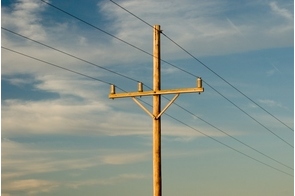Latest News
Poor infrastructure costs developing countries $4.2tn a year – WB report

News Highlight
According to the World Bank report, outages or disruptions to power, water, communication and transport affect the productivity of firms, the incomes and jobs they provide, as well as directly impacting people’s quality of life.
According to a new report from the World Bank and the Global Facility for Disaster Reduction and Recovery (GFDRR), developing countries could have on average $4.2 trillion in net benefit by investing in more resilient infrastructure. The report, Lifelines: The Resilient Infrastructure Opportunity, also provides a framework for understanding infrastructure resilience, describing the concept as “the ability of infrastructure systems to function and meet users’ needs during and after a natural hazard.”
According to the report, for each dollar invested in resilience, there is a $4 benefit. The report is in line with the advocacy of Goal 9 of the Sustainable Development Goals (SDGs), which calls for building resilient infrastructure, promoting inclusive and sustainable industrialization and fostering innovation.
The report examines four essential infrastructure systems: power, water and sanitation, transport, and telecommunications. The report considers it critical to make these infrastructures more resilient because doing so not only avoids costly repairs but also minimizes the wide-ranging consequences of natural disasters for the livelihoods and well-being of people.
“Resilient infrastructure is not about roads or bridges or powerplants alone. It is about the people, the households and the communities for whom this quality infrastructure is a lifeline to better health, better education and better livelihoods,” said World Bank President, David Malpass. “Investing in resilient infrastructure is about unlocking economic opportunities for people. This report offers a pathway for countries to follow for a safer, more secure, inclusive and prosperous future for all.”
According to the report, outages or disruptions to power, water, communication and transport affect the productivity of firms, the incomes and jobs they provide, as well as directly impacting people’s quality of life. This makes it impossible for children to go to school or study, and contributing to the spread of water-borne diseases like cholera.
The report offers five recommendations to ensure that infrastructure systems and users become more resilient. The first recommendation is to tackle poor management and governance of infrastructure systems. The report also calls for building resilient institutions. It says wider political economy challenges also need to be addressed.
The third recommendation is to use financial incentives to ensure that the full social cost of infrastructure disruptions is accounted for as this would encourage service providers to go beyond just meeting mandatory standards. The fourth recommendation is to improve decision-making by utilizing better data, tools, and skills in building resilience.
Finally, the report calls for the need to provide financing at the right time. For instance, small amounts of resources can support regulators and be used at the early stages of infrastructure design compared to the billions needed to repair and recover in the aftermath of a disaster.
Related News
Latest Blogs
- Driving economic growth through green transition in Nigeria
- CBN is fighting inflation instead of stagflation
- Why electricity privatization failed (2)
- How net metering can boost embedded power generation
- Adaora Umeoji and gender in Nigerian banking leadership
Most Popular News
- IFC, partners back Indorama in Nigeria with $1.25 billion for fertiliser export
- CBN increases capital requirements of banks, gives 24 months for compliance
- Univercells signs MoU with FG on biopharmaceutical development in Nigeria
- CBN settles backlog of foreign exchange obligations
- Ali Pate to deliver keynote speech at NDFF 2024 Conference
- Euromonitor forecasts Sub-Saharan Africa GDP to grow to $4.5trn by 2040






